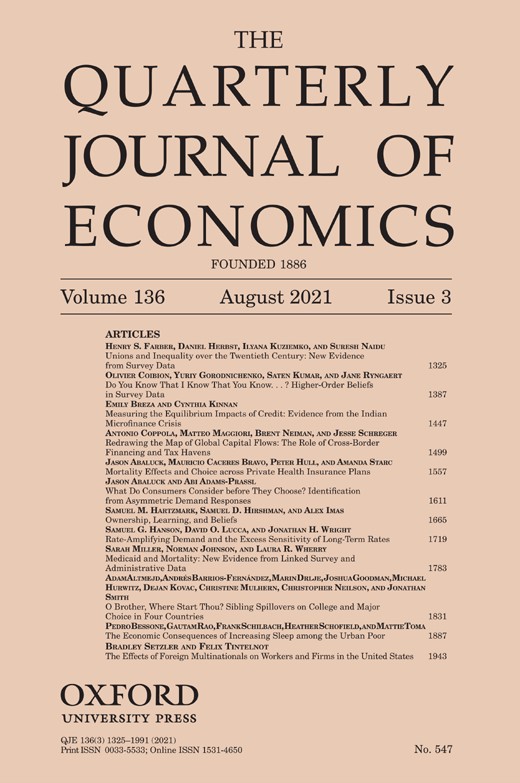
Measuring Income Tax Evasion Using Bank Credit: Evidence from Greece
We document that in semiformal economies, banks lend to tax-evading individuals based on the bank’s assessment of the individual’s true income. This observation leads to a novel approach to estimate tax evasion. We use microdata on household credit from a Greek bank and replicate the bank underwriting model to infer the banks estimate of individuals’ true income. We estimate that 43–45% of self-employed income goes unreported and thus untaxed. For 2009, this implies €28.2 billion of unreported income, implying forgone tax revenues of over €11 billion or 30% of the deficit. Our method innovation allows for estimating the industry distribution of tax evasion in settings where uncovering the incidence of hidden cash transactions is difficult using other methods. Primary tax-evading industries are professional services—medicine, law, engineering, education, and media. We conclude with evidence that contemplates the importance of institutions, paper trail, and political willpower for the persistence of tax evasion.





